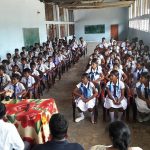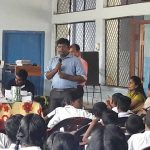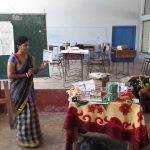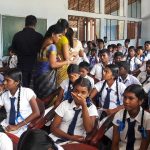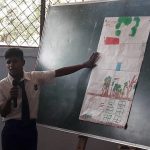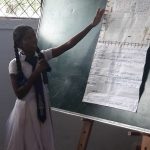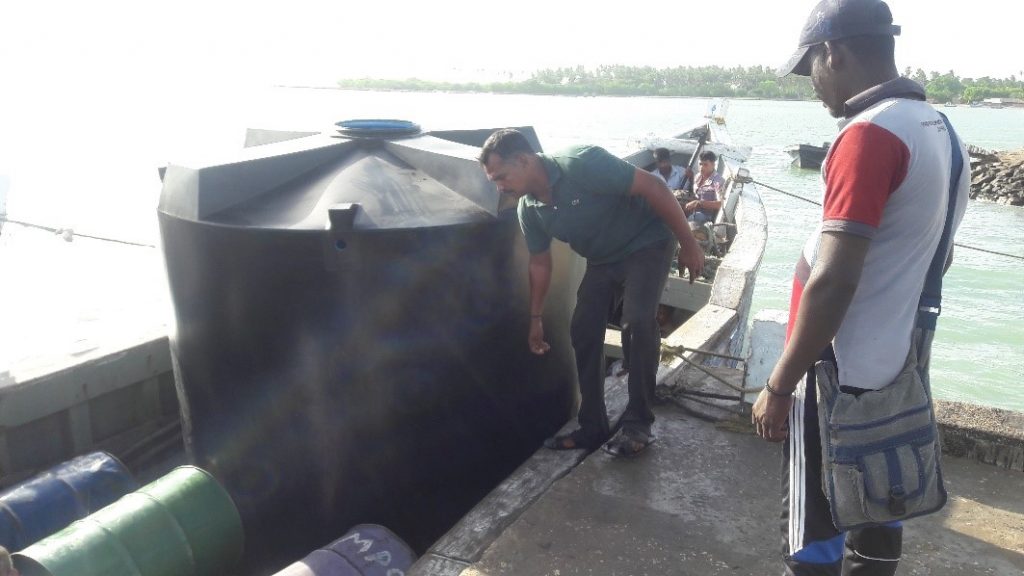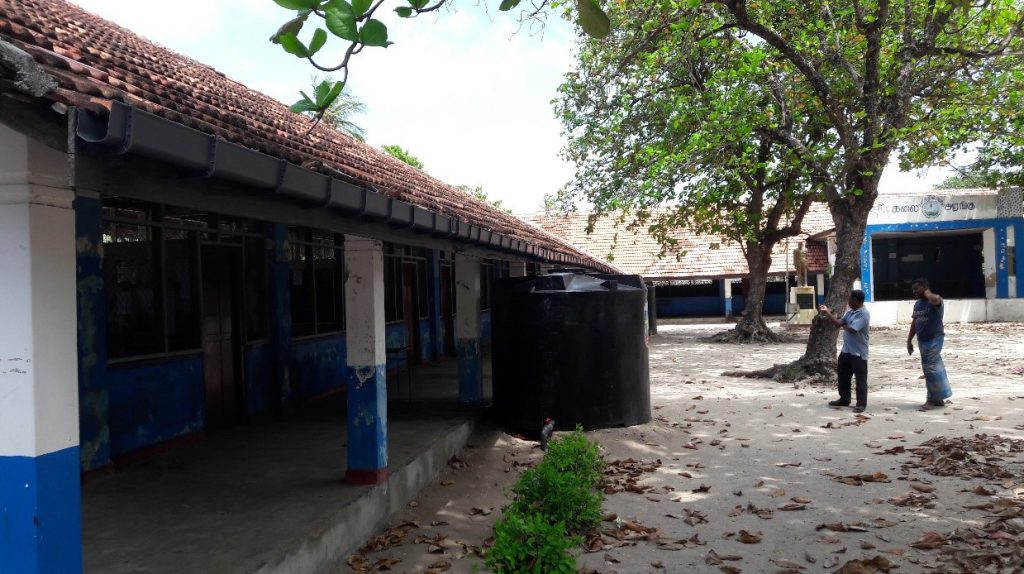Installation of an efficient model of water management and novel home garden system at the Delft Island
Introduction
The Jaffna Science Association has competitively secured a 3.165 Million Rupees grant from the International Union for Conservation of Nature (IUCN) to install an efficient model of water management and novel home garden system at the Delft Island. The project aimed to install a rain water harvesting system at the Delft Maha Vidyalayam. The harvested water will be used to establish a drip irrigation based school garden system. The second part of the project intend to establish a novel home garden system at the Sarapittiya village. The project was started on 1st of March 2016 and will finish on 28th of February 2017. Dr K Thabotharan, Dr R Surenthirakumaran, Professor G Mikunthan and Mr Pratheesh Maheswaran are servicing as project Managers.
The Delft Island is the second largest island in Sri Lanka, located approximately 10km away from the mainland and 46km away from the Jaffna city. It is roughly an oval shape with the maximum length of 8km, width of 6km and has the total area of 49.5km2. The Delft Island has a population of 4860, as of 2011, belonging to 1468 families and their economy is primarily based on fisheries and cottage industries. The temperature ranges from 26°C to 33°C, with an average temperature of 28.2°C. The relative humidity varies from 70% during the day to 90% at night on the Island.
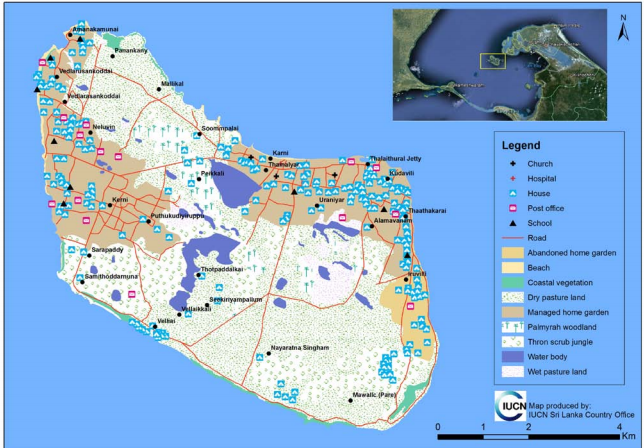
The main aquifer type of the Delft Island is a limestone with some consolidated brown and grey costal sand. The concern of the aquifer is the high salinity, which rules-out the safe usage in humans. Currently, the drinking water is provided from a village called Sarapittiya to the entire Delft Island for drinking and plantation purposes. There are concerns that continuous usage of water will deplete the aquifer available at the Sarapittiya and will put the people in a vulnerable position. The Reverse Osmosis plant is also providing support to meet the demand of water.
The Delft Island receives 750mm annual rainfall, which occurs mainly on two seasons; n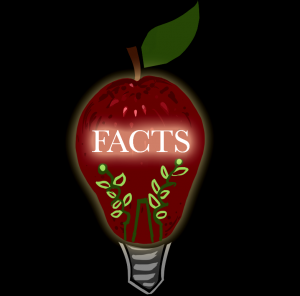 amely April and November. The Delft Island has number of newly built administrative buildings with guttering systems. These facilities enable to harvest the rain water by making modifications in guttering structures. The project aimed to use the existing facilities to harvest maximum amount of water at the low cost. Farmers of the Delft Island use traditional watering system, a system where large amount of wateris wasted. The project also intends to introduce a drip irrigation system and other water management systems to the Delft Island. In particularly, the farmers in the Sarapittya village can’t cultivate plants due to rocky land. The project facilates to establish a novel home garden system for families.
amely April and November. The Delft Island has number of newly built administrative buildings with guttering systems. These facilities enable to harvest the rain water by making modifications in guttering structures. The project aimed to use the existing facilities to harvest maximum amount of water at the low cost. Farmers of the Delft Island use traditional watering system, a system where large amount of wateris wasted. The project also intends to introduce a drip irrigation system and other water management systems to the Delft Island. In particularly, the farmers in the Sarapittya village can’t cultivate plants due to rocky land. The project facilates to establish a novel home garden system for families.
| Intervention Logic | Objectively Verifiable Indicators (OVIs) | Source of Verification (SoV) | Assumptions |
| Goal | |||
| A model of water management system and novel home garden systems are established at the Delft Island | Adaptation of the established model to various institutions/places. | Report from various administrative offices | Willingness of the administrative offices to adopt the model. |
| Objectives | |||
| 1. A model of efficient water management system is established at the Delft Island | Installation of rain water harvesting system for vegetable cultivation | Principal’s report | Good coordination between stakeholders |
| Drip irrigation system for sand-bag based vegetable garden and introduction of draught resistant plants. | Principal’s report | Readily available supply of seeds, pesticides and fertilisers. | |
| Novel home garden system is established | Report from South Farmer’s Society | Willingness of beneficiaries to follow the model. | |
| 2.Project Management functioning well. | Establishment of a project team with the requisite competencies for work described earlier. | Project Team; | |
| Establishment of a system for regular consultation with the stakeholders; | Stakeholder consultation reports | ||
| Day-to-day management of the Project, including reporting | Project Office reports |
A workshop was conducted on 29/09/2016 to improve awareness on water management at the Delft Maha Vidyalayam. The workshop was funded by the project of “Installation of an efficient model of water management and novel home garden system at the Delft Island”.
Dr Shivatharsiny Rasalingam (Senior Lecturer, Department of Chemistry), Dr T.Willaim Shanthakumar (Senior Lecturer, Department of Zoology), Mr. S.Sivakaran (Lecturer, Department of Philosophy), Mrs Suvanthini Terensan Shanmugaratnam (Lecturer, Department of Agricultural Biology), Mrs Ambihai Shayanthan (Lecturer, Department of Agricultural Chemistry) and Mr Pratheesh Maheswaran (Lecturer, Unit of Allied Health Sciences) have participated as resource persons. Mr Pratheepan Ramachandran (Project Assistant) joined the workshop to coordinate arrangements.
The workshop was started at 9.30am after a short brief by the Principal of the Delft Maha Vidyalayam. The welcome address was delivered by Mr S Sivakaran. The workshop was conducted under three themes; namely developing school garden, developing plans for irrigation methods and towards a better future.
Students of Grade 8, 9, 10, 12 and 13 took part in the workshop and they were divided into groups of Grade 8 and 9 (Facilitators: Dr S Rasalingam and Mrs S Shanmugalingam), Grade 10 (Facilitators: Dr T Shanthakumar and Mr S Sivakaran) and Grade 12 and 13 (Facilitators: Mrs A Shayanthan and Mr P Maheswaran).
Students were divided into number of groups within each theme and they were facilitated to develop plans and finally, they had the opportunity to present their plan in front of every one. Dr S Rasalingam acted as the judge for the presentation. The Principal/Delft Maha Vidylayam awarded number of books to winning teams. The offered books are related to student’s academic performance and to improve their personal development. In addition to this all students received an exercise book, a pen and a chocolate. Mrs A Shayanthan explained the benefit of reading Science Magazine that is published by the JSA. Each student who participated in the workshop received the Science Magazine book.
Mrs S Shanmugalingam explained the concept of pitcher irrigation method to students. Students well understood the concept. Dr T Shanthakumar ceremonially offered a pot and a plant to the Principal of the Delft Maha Vidyalayam. The rest of pots and plants will be given to students by the Principal/Delft Maha Vidyalayam. The workshop came to an end at 1.00pm.

